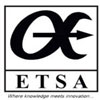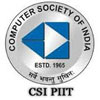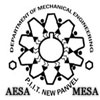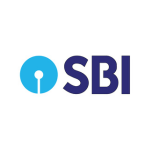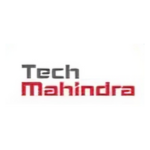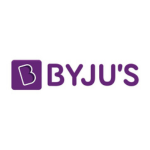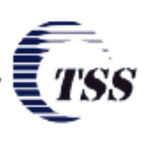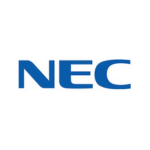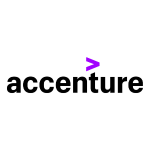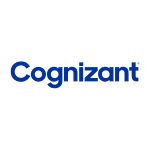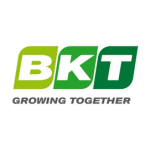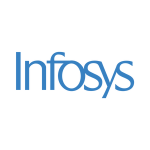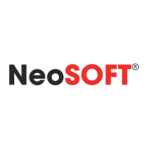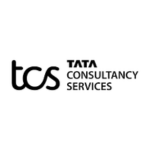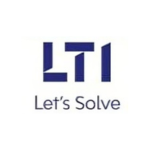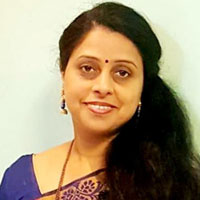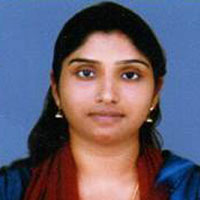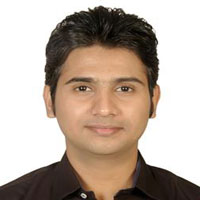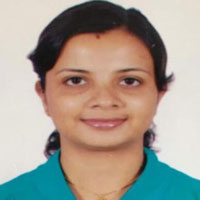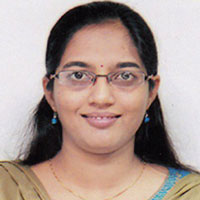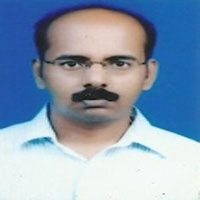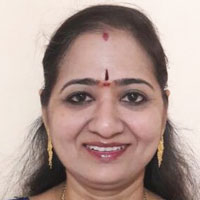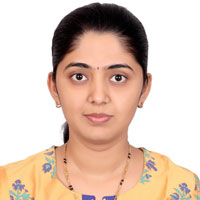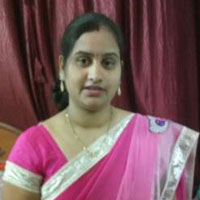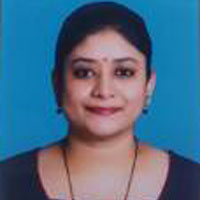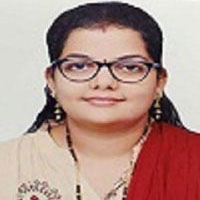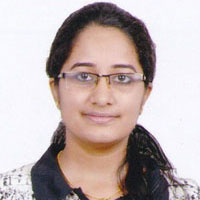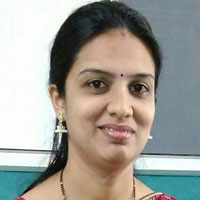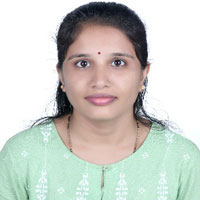Introduction
Overview of Computer Engineering
The B.Tech. in Computer Engineering program is designed to empower students with the essential knowledge, technical skills, and innovative mindset needed to thrive in today’s technology-driven world. It offers a well-balanced blend of strong theoretical foundations, hands-on practical experience, and industry-oriented learning, preparing graduates to become future-ready professionals and leaders in computing, innovation, and research.
The curriculum covers core areas such as programming, data structures, algorithms, computer networks, operating systems, databases, and software engineering, along with emerging technologies like artificial intelligence, machine learning, cloud computing, blockchain technology, cybersecurity, and data analytics — equipping students for dynamic careers in the rapidly evolving technology landscape.
Vision
To be a center of excellence in Computer Engineering by fostering innovation, research, entrepreneurship and shaping responsible technology leaders who drive sustainable and ethical advancements in the digital world.
Mission
- To provide a comprehensive and industry-aligned curriculum that equips students with cutting-edge knowledge, problem-solving skills, and technological expertise in computer engineering.
- To promote responsible computing solutions that address societal and environmental challenges, ensuring ethical use of technology for improvement in quality of life. To establish strong partnerships with industries, research institutions, and startups in order to bridge the gap between academia and real-world.
- To nurture creativity, critical thinking, entrepreneurial spirit among students and thus empowering them to develop technology-driven solutions with positive impact on human life.
- To foster a culture of continuous learning, adaptability, maintaining global level of competence with an aim of preparing students to excel in diverse and dynamic technological landscapes.
Programme Outcomes
Engineering Graduates will be able to:
- PO1: Engineering Knowledge: Apply knowledge of mathematics, natural science, computing, engineering fundamentals and an engineering specialization as specified in WK1 to WK4 respectively to develop the solution of complex engineering problems.
- PO2: Problem Analysis: Identify, formulate, review research literature and analyze complex engineering problems reaching substantiated conclusions with consideration for sustainable development. (WK1 to WK4)
- PO3: Design/Development of Solutions: Design creative solutions for complex engineering problems and design / develop systems / components / processes to meet identified needs with consideration for the public health and safety, whole-life cost, net zero carbon, culture, society and environment as required. (WK5)
- PO4: Conduct Investigations of Complex Problems: Conduct investigations of complex engineering problems using research-based knowledge including design of experiments, modelling, analysis & interpretation of data to provide valid conclusions. (WK8).
- PO5: Engineering Tool Usage: Create, select and apply appropriate techniques, resources and modern engineering & IT tools, including prediction and modelling recognizing their limitations to solve complex engineering problems. (WK2 and WK6)
- PO6: The Engineer and The World: Analyze and evaluate societal and environmental aspects while solving complex engineering problems for its impact on sustainability with reference to economy, health, safety, legal framework, culture and environment. (WK1, WK5, and WK7).
- PO7: Ethics: Apply ethical principles and commit to professional ethics, human values, diversity and inclusion; adhere to national & international laws. (WK9)
- PO8: Individual and Collaborative Team work: Function effectively as an individual, and as a member or leader in diverse/multi-disciplinary teams.
- PO9: Communication: Communicate effectively and inclusively within the engineering community and society at large, such as being able to comprehend and write effective reports and design documentation, make effective presentations considering cultural, language, and learning differences.
- PO10: Project Management and Finance: Apply knowledge and understanding of engineering management principles and economic decision-making and apply these to one’s own work, as a member and leader in a team, and to manage projects and in multidisciplinary environments
- PO11: Life-Long Learning: Recognize the need for, and have the preparation and ability for
i) independent and life-long learning ii) adaptability to new and emerging technologies and iii) critical thinking in the broadest context of technological change. (WK8)
Program Educational Objectives (PEOs)
- Graduates will demonstrate technical proficiency in computer engineering by applying industry-relevant skills, modern tools, and problem-solving abilities to design and develop innovative computing solutions in various domains.
- Graduates will engage in responsible computing practices, upholding ethical standards while developing sustainable solutions that address social, economic, and environmental challenges for the betterment of society.
- Graduates will actively contribute to research, innovation, and entrepreneurial ventures by leveraging creative thinking and collaboration with academia, industry, and startups to solve real-world problems.
- Graduates will pursue continuous learning, adapt to evolving technologies, and exhibit leadership and teamwork skills to succeed in diverse global environments and multidisciplinary teams.
Program Specific Outcomes (PSOs)
- Graduates will be able to apply their knowledge of computer science and engineering to solve complex problems.
- Graduates will be able to use professional engineering practices, logic, and strategies for creating innovative career paths, becoming an entrepreneur, or pursuing higher studies.
- Graduates will be able to formulate and solve real-life engineering problems concerning public health and safety with social and environmental awareness and ethical responsibility.
Computer Engineering
Program Offered at Pillai College of Engineering
Bachelor of Computer Engineering Course Structure
The curriculum encompasses fundamental concepts in both hardware and software, such as microprocessors, data structures, computer architecture, database management, cybersecurity, data mining, artificial management, machine learning, ethical hacking, and computer architecture. Students at one of the best computer engineering colleges in Navi Mumbai gain the ability to build, implement, and optimize hardware and software systems through practical projects and labs, preparing them for careers in systems design, data science, software development, and cybersecurity.
Here’s your information presented in a clean table format:
| Affiliated to | Duration | Academic Year | Intake | Theory Exam | Curriculum |
|---|---|---|---|---|---|
| University of Mumbai | 4 years, Full Time | 2 semesters each | 180 | University of Mumbai | Link |
Unique Features of the Program
Pillai College of Engineering is regarded as one of the best institutes for B.Tech in Computer Engineering in Navi Mumbai.
The program offers specialized tracks in:
Department Level specialization Tracks
- Artificial Intelligence and Data Science
- Human Computer Interaction
- Robotics and Automation
- Cloud and Cyber Security
Institute Level specialization Tracks
- Entrepreneurship Development and Management
- Business Management
- IP Management
- Bioengineering
- Bio Instrumentation
- Engineering Design
- Sustainable Technologies
- Contemporary Studies
- Art and Journalism
- Applied Science
- Green Technologies
- Maintenance Engineering
- Life Skills
- Environment & Safety
Research Lab :
High Performance computing lab
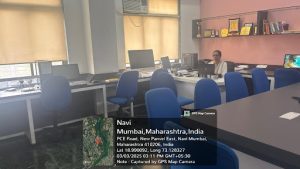
- Artificial Intelligence and Data Science
- Cyber Security
- Digital Forensics
- Natural Language Processing
- Social Media Analytics
- Internet of Things
- Robotics
- User Experience Engineering and Design
Labs specifically designed for Computer Engineering department:
Name of Laboratory:
- Computer Architecture Lab
- Network Lab
- Open Source Lab
- Advanced Database Lab
- Web Engineering Lab
- Database and Data Mining Lab
- System Software Lab
- Computer Programming and Data Structure Lab
- Big Data Lab
- AI-ML Lab
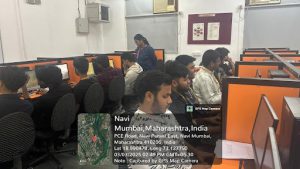
Admission Process
Admission Requirements:
Students wishing to pursue a Bachelor of Technology in Computer Engineering at one of the top colleges in Navi Mumbai must meet the following qualifications:
- Eligibility: The candidate must have completed their 12th-grade education with Physics, Chemistry, and Mathematics as core subjects. A minimum percentage in these subjects is required, as specified by the admission authority.
- Entrance Exams: The candidate must have a valid score in either MHT-CET (Maharashtra Common Entrance Test) or JEE (Joint Entrance Examination). These exams determine merit-based admissions into the engineering program.
- Application Process: Students can apply online through the Centralized Admission Process (CAP), managed by the Directorate of Technical Education (DTE), Maharashtra. After clearing the entrance exam, candidates can select Pillai College of Engineering as their preferred choice during the CAP counseling process.
- Cutoff: The cutoff for Computer Engineering for the 2024-25 academic year at Pillai College was 95.89 percentile.
Documents Required:
The documents necessary to complete the admission process include the following:
| Sr. No. | Documents |
|---|---|
| 1 | ARC (CAP) Allotment Letter (FC Registration Form in case of Institute Level and Against CAP Admission) |
| 2 | S.S.C. Marksheet and Passing Certificate |
| 3 | H.S.C. Marksheet and Passing Certificate |
| 4 | Leaving / Transfer Certificate |
| 5 | Caste Certificate (if applicable) |
| 6 | Caste Validity Certificate (if applicable) |
| 7 | Non-creamy Layer Certificate (only for DT/VJ, NT, OBC, SBC) |
| 8 | Migration Certificate (if applicable) |
| 9 | Domicile Certificate |
| 10 | Equivalence Certificate (if applicable) |
| 11 | Photocopy of Aadhar Card |
| 12 | Gap Certificate (if applicable) |
| 13 | Income Certificate (if applicable) |
| 14 | Duly signed printout of Anti-Ragging Affidavit submitted online on www.antiragging.in by Candidate and Parent |
| 15 | Printout of duly signed University of Mumbai Pre-Admission Online Registration Form (mum.digitaluniversity.ac) with one set of all the above mentioned Documents (University's Institute Code: 561) |
| 16 | MHT CET/JEE Score Card |
Note
For the previously mentioned documents, all students have to hand in two (2) sets of attested photocopies.
- Since the original documents will only be given back to the students upon course completion, it is recommended that all students keep a suitable quantity of attested photocopies of all the documents they provided to the institution upon enrollment.
- Before presenting their documents to the college for admission, all students must scan them. In order to submit these scanned documents for scholarships, etc., they must be uploaded.
Application Timeline:
The admission process for Computer Engineering at Pillai College of Engineering typically follows the MHT-CET and JEE Main merit system. Here are the tentative general key application milestones:
- MHT-CET Registration: Generally opens in early January.
- MHT-CET Exam Date: Usually held in May.
- CAP Rounds: Commence after the exam results, typically in June-July.
- Admission Deadlines: Vary based on the schedules for CAP rounds and JEE Main results.
Note:
- It is essential for prospective students to stay updated on application openings, CAP round deadlines, and document verification periods each year.
- Meeting the eligibility criteria will help ensure a smooth admission process.
- To stay informed about specific dates, students should regularly check the official MHT-CET website.
By keeping track of these important dates and requirements, students can effectively navigate their journey to admission at Pillai College of Engineering.
Fee Structure:
Fee Structure For Maharashtra State Board Students
| YEAR | GENERAL | OBC | SC/ST | SBC/DT/VJ/NT | TFWS | J&K |
|---|---|---|---|---|---|---|
| FIRST YEAR ENGINEERING TOTAL FEES (Rs.) | 1,37,360/- | 79,534/- | 4,360/- | 21,708/- | 21,708/- |
Fee Structure For Other Than Maharashtra State Board Students
| YEAR | GENERAL | OBC | SC/ST | SBC/DT/VJ/NT | TFWS | J&K |
|---|---|---|---|---|---|---|
| FIRST YEAR ENGINEERING TOTAL FEES (Rs.) | 1,38,360/- | 80,534/- | 5,360/- | 22,708/- | 22,708/- | 29,360/- |
| DIRECT SECOND YEAR ENGINEERING TOTAL FEES (Rs.) | 1,38,360/- | 80,534/ | 5,360/- | 22,708/- | -- | -- |
Exam Preparation Resources:
Computer Science Engineering Syllabus in IIT Bombay:
- Textbooks: Focus on NCERT textbooks for Physics, Mathematics, and Chemistry, as they cover fundamental concepts essential for both MHT-CET and JEE Main.
- Reference Books:
- Physics: “Concepts of Physics” by H.C. Verma
- Mathematics: “Objective Mathematics” by R.D. Sharma
- Chemistry: “Organic Chemistry” by Morrison and Boyd
- Online Resources: Websites like Khan Academy, BYJU’S, and Unacademy offer video lectures and practice problems tailored for these entrance exams.
- Previous Year Papers: Solve previous years’ question papers for MHT-CET and JEE Main to understand the exam pattern and frequently asked questions.
- Mock Tests: Regularly take mock tests to build exam temperament and time management skills for securing a seat at the best Computer Science Engineering Colleges in Maharashtra.
Note:
For practicing you can visit: mockcet.mes.ac.in
Training and Development Opportunities
Internships and Industry Collaboration:
Pillai College of Engineering (PCE) is one of the top engineering institutes in Navi Mumbai for Computer Engineering. The college has strong collaborations with leading companies and industries, offering students opportunities to gain practical and theoretical knowledge. Our students are equipped with a solid foundation in core concepts and reasoning, while our dedicated placement cell works to connect them with top industry employers for internships.
Some of these leading companies in collaboration with our college, who provide internships to our students are mentioned below:
Industry Collaborations
MOUs signed with
- Tristha Global Pvt. Ltd. Mumbai
- Saintiant Technologies
- Cyber Secured India
- EKEEDA Pvt. Ltd.
- EXCELR Solution, Bengaluru, Karnataka
- Astroborne Space & Defence Technologies, Mumbai
Value-added Courses
- Python and Development of Web Application using Flask Framework
- Internet of Things and Its Applications
- Complete Network Fundamentals: Mastering CCNA
- R Programming
- Blockchain Basics using Solidity Programming”
- PHP & MySQL
- Value Added Course on Tableau
- Mobile Application Development
Student Chapters
- CSI: PCE’s CSI Student Chapter offers students a platform to enhance their technical skills, connect with industry professionals, and engage in career-oriented activities. Through workshops, seminars, coding competitions, and guest lectures, students stay updated with the latest trends in the IT world.
The chapter provides opportunities for hands-on learning, leadership development, and networking, helping students bridge the gap between academic knowledge and industry practices. - GDG: The Google Developer Group (GDG) at PCE helps students stay updated with the latest technologies by organizing workshops and seminars. It encourages creativity by hosting hackathons, coding competitions, and similar events. GDG also promotes teamwork through group projects and team-building activities.
The chapter also promotes teamwork through group projects and team-building activities, enhancing collaboration skills. Additionally, GDG facilitates guest lectures and networking events, offering students opportunities to connect with professionals and gain valuable real-world insights into their field.
Career Prospects for Graduates
Job Opportunities After Graduation
A degree in Computer Engineering unlocks opportunities in software development, hardware design, network systems, and emerging technologies. Graduates from top colleges in Navi Mumbai gain a competitive edge, opening doors to global careers in the dynamic field of computer engineering.
Industrial Visits organized
- Industrial Visit to STPI, Pune organized by CSI-PCE
- Industrial Visit to Opulent, Pune organized by CSI-PCE
- Industrial Visit to CDAC, Pune organized by CSI-PCE
- Industrial Visit to Cyber forensics Lab, Navi Mumbai.
- Industrial Visit to ESDS SOFTWARE SOLUTION LIMITED Mahape, Navi Mumbai.
Placement Success Stories
- Average package offered for Computer Engineering graduates at PCE is around 5-7 LPA.
- Highest package offered for a Computer Engineering graduate from Pillai College of Engineering is 15 LPA.
- Brijeshkumar Singh, Batch of 2025, got placed at Allrin with a CTC of 7 LPA.
- Om Sandeep Bothre, Batch of 2024, got placed at Capgemini as a software engineer with CTC of 6 LPA.
- Shivam A Tripathi, Batch of 2025, got placed at Capgemini as a software engineer with CTC of 6 LPA.
- Jyotirmay Janardan Prasad, Batch of 2025, got placed at Capgemini as a software engineer with CTC of 6 LPA.
- 21 students from Batch of 2025 got placed at Capgemini with a CTC of 6 LPA.
- Past placement records of Computer Engineering graduates at PCE:
- Shreyan Pradeep Haldankar, Batch of 2024, got placed at Impact Analytics with a CTC of 8.75 LPA.
- Reshma Gopinathan, Vishnu Saseendran Nair, Ganesh Mohan Pillai, Batch of 2024, got placed at TCS with 6 LPA.
- Sanskruti Rajendra Salve, Batch of 2024, got placed at Capgemini with 4 LPA.
- 5 students from Batch of 2024 got placed at TCS through TCS Ninja with 4 LPA.
- 4 students from Batch of 2024 got placed at TCS through TCS Digital with 4 LPA.
- Aniket Surve, Chaitanya Zade, Arpita Nikam, Batch of 2024, got placed at Adenza with a CTC of 8 LPA.
- 8 students from Batch of 2023 got placed at TCS through TCS Ninja with 4 LPA.
- 3 students from Batch of 2023 got placed at TCS through TCS Digital with 4 LPA.
- Shivalika Pillai, Batch of 2023, got placed at Reliance Jio-Illuminate with a CTC of 7 LPA.
- Vishwakarma Aakash Jaiprakash, Batch of 2023, got placed at Reliance Jio-Illuminate with a CTC of 7 LPA.
- 21 students from Batch of 2021 got placed at Capgemini with a CTC of 4 LPA.
Capgemini, Accenture, TCS, Reliance’s Jio, ctrl S are the major companies conducting the Mass Requirement Drive for Pillai College of Engineering.
Internship Success Stories
- Average stipend offered for a Computer Engineering graduate at PCE is around 10-20K.
- Highest stipend offered for a Computer Engineering graduate from Pillai College of Engineering is 20K.
- Past internship records of Computer Engineering graduates at PCE:
- Saras Shirgaonkar, Kamlesh Yadav, Atharv Bote, Batch of 2024, got internships at Suryoday Small Finance Bank Ltd., Newgen Software Technologies Ltd., etc., with a stipend of 20K.
- Shreyan Haldankar, Batch of 2024, got an internship at Impact Analytics with a stipend of 15K.
- Priyanshu Chilkoti and Adheesh Sreedharan, Batch of 2024, got internships at Living Things – An IoT Product Platform by iCap Tech, Tapmyads Technologies Pvt Ltd., etc., with a stipend of 10K.
- A total of 204 students from the Batch of 2024 secured internships.
- Over 100 prestigious companies offered internships for the Batch of 2024 Computer Engineering students, including leading names like:
- Medtronic India Ltd., Reliance Jio Infocomm Ltd., Maharashtra Cyber, Bhabha Atomic Research Centre, Tech Mahindra Ltd., Newgen Software Technologies Ltd., Sutherland Global Services, Jio Platforms Ltd., and Acuradyne Medical Systems.
- 12 Computer Engineering students from the Batch of 2024 received Pre-Placement Offers (PPOs) from top companies, reflecting their skills and expertise in the field. Companies offering PPOs include:
- Sutherland Global Services, Impact Analytics, Team India Managers Ltd, Newberry Group, Decentralized Planning Incorporated, Jio Financial Services, Aivanta, Sankey Solutions, NeoGrowth Credit Pvt. Ltd., Locuz Enterprise Solutions Ltd., Nimap Software Company, and ANM.
Alumni Success Stories

Rahul Pinjani
Designation: Senior Software Engineer at Microsoft, Redmond, Washington, United States .
Graduation Batch- 2011
Details :Rahul Pinjani appears to have a visionary approach to his work, evident in several key aspects such as Forward-Thinking in Technology Integration,Commitment to Innovation, Emphasis on Quality and Scalability, Focus on Enhanced User Experiences ,adaptability to Change and Overall, his work reflects a strong vision for leveraging cutting-edge technologies and design principles to create impactful, user-focused solutions that are both innovative and sustainable
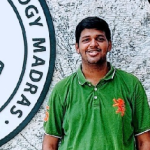
Vinod Gupta
Designation: MS CSE Research Scholar at IIT Madras | Placement coordinator
Graduation Batch- 2020
Details : Vinod Gupta demonstrates visionary qualities that lie in his dedication to research, focus on collaboration, mentorship, and strategic application of advanced technologies to solve meaningful problems. His proactive pursuit of learning, teaching, and innovation marks him as a forward-thinking contributor to the field.

Ashwini Khade
Designation: Principal Software Engineer at Microsoft San Francisco Bay Area .
Graduation Batch- 2009
Details: Ashwini Khade embodies visionary qualities through her work in AI, cloud computing, and embedded systems. Ashwini’s achievements reflect a strong technical foundation, innovative problem-solving skills, and a commitment to developing scalable, cutting-edge solutions. Her career trajectory, marked by leadership roles and impactful contributions, underscores her ability to shape and advance the future of technology across diverse industries.

Tejas Unnikrishnan
Designation: Data and AI Engineer | MSc Big Data Science from QMUL with 4+ years of experience as a Big Data Engineer. London, England, United Kingdom
Graduation Batch- 2008
Details : Tejas Unnikrishnan’s visionary qualities and achievements are reflected in his extensive experience, innovative contributions, and ability to manage complex projects and teams.Tejas is a visionary leader in software development, adept at integrating cutting-edge technologies to solve complex problems across industries. The achievements reflect not only technical expertise but also a strategic mindset for creating scalable, efficient, and impactful solutions. He excels in innovation, collaboration, and driving long-term value in diverse and high-stakes environments.
Why Choose Pillai College of Engineering for Computer Engineering
Quality of Education at PCE:
Pillai College of Engineering (PCE) is distinguished as one of the most exceptional institutions for B.Tech in Computer Engineering as a result of its comprehensive curriculum and rigorous accreditation. Our programs guarantee that students have a high-quality educational experience by adhering to strict educational requirements. PCE is one of the finest institutions in Navi Mumbai because its programs are approved by prestigious institutional authorities and fulfill national standards, which improves graduates’ employability and professional credibility.
Affiliation and Approval:
- Affiliated to the University of Mumbai
- Approved by All India Council for Technical Education (AICTE), New Delhi
- Recognized by the Government of Maharashtra and DTE, Maharashtra
- Granted Autonomous Status by University Grants Commission (UGC), New Delhi from the academic year 2022-23
- 4 UG courses are Permanently Affiliated with the University of Mumbai
Accreditation:
- NAAC A+ grade
- 3 UG courses re-accredited by NBA in 2015 and 2018
State-of-the-Art Facilities
State-of-the-Art Facilities
Infrastructure and Facilities:
PCE is built on a 16-acre lush green campus, featuring 2,30,000 sq. ft. of built-up area, and providing world-class resources for Computer Engineering students.
Key Facilities Include:
- Smart Classrooms
- Auditorium
- Seminar Halls
- E-learning Studio
- Research Centers
- Language Labs
- Pillai Centre of Innovation and Entrepreneurship
- Green Infrastructure (including E-waste Recycling, Rainwater Harvesting, and Solar Power Generation)
- Plastic Bottle Recycling Machine
Labs Specifically Designed for Computer Engineering:
- Artificial Intelligence and Machine Learning Lab: Equipped with advanced computing infrastructure to support AI, ML, and DL projects.
- Center of Excellence in 5G Communication (Advanced Communication Lab): Focused on RF and Microwave communication, supporting UG and PG experiments.
- CISCO Network Academy: A dedicated networking lab offering hands-on training in networking and IoT.
- Digital Electronics Lab: For hands-on experience with digital circuits and systems.
- Computer Networking Lab: Designed for practical experience in computer network design and troubleshooting.
- Microprocessor Lab: Offers practical exposure to microprocessor-based system design and analysis.
Industrial Visits for Electronics Science:
- Visit to Cyber Crime Laboratory
- CSI Industrial Visit
- Persistent System, Pune

